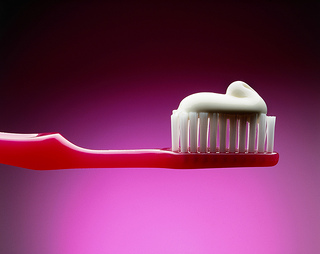Tips for Keeping Your Breath Fresh While You’re in Braces
April 14th, 2021

You’ve got a lot going on in your busy life, and whether it’s school, practice, or simply socializing, you want to put a confident face forward. And part of that confidence comes from knowing your breath is its freshest!
Too often, though, this time of your life makes that goal seem difficult. Let’s look at ways to keep you smiling your brightest and feeling your freshest in any social setting.
- Watch Your Diet
Sure, garlic, onions, and other pungent food choices are obvious culprits when it comes to bad breath, but did you know that sugars and simple carbs are the food of choice for the bacteria that cause decay, gingivitis, and bad breath? Eating a nutritious, braces-friendly diet will help keep your mouth, your braces, and your breath healthy.
And it’s not just what you eat. Dehydration also causes bad breath. But those caffeinated drinks and sodas that keep you going through the day are the source of acids and sugars that contribute to tooth decay, gum disease, and less-than-fresh breath. Water, milk, and healthy smoothies are a great way to stay hydrated, add vitamins and minerals to your diet, and go easy on your braces.
- Keep Up with Oral Hygiene
It’s hard to keep your teeth and gums their cleanest when it seems like you’re always on the go, but good oral habits are just as important now as they were when you were younger.
Brushing after every meal and snack and flossing daily will help get rid of the bacteria and plaque, which lead to cavities. Our tongues also harbor the bacteria that cause bad breath, so finish off your routine with a gentle brush of the tongue, or try a tongue scraper.
Flossing helps keep gums healthy, which, in turns, keeps your breath healthy as well. Dentists generally suggest flossing once a day, but wearing braces could require flossing more often to make sure you’re getting rid of all those food particles that can become trapped in brackets and wires. Studies have suggested that hormonal changes in teenagers can mean your gums are more at risk for periodontal problems, which can also lead to bad breath, so don’t neglect your gum health!
And be sure to make room in your schedule for regular checkups and cleanings. Your dentist and hygienist will let you know if you’re on track for healthy teeth and gums and fresh breath.
- Wearing Braces?
Part of careful brushing and flossing means getting to all those places in your braces which trap food particles. Besides being a source of unpleasant odors, food particles lead to plaque buildup and tooth decay, another cause of bad breath.
Dr. Cronin can suggest the best methods for keeping your braces their cleanest—even in hard to reach spots—with suggestions for brushing and flossing techniques. We can also suggest the best and easiest-to-use products for your particular braces, and recommend or prescribe antibacterial mouthwashes.
- Wearing Aligners?
Aligners are removed before you eat, so it’s easy to forget that they also need attention. Follow instructions given at our Langley office for daily cleaning to prevent saliva and plaque from sticking to your aligners and causing odors. And always remember to brush before you replace aligners after eating a meal or even snacking—otherwise, you’re just trapping the food particles that cause cavities or odors next to your teeth.
You’ve got a lot going on in your busy life, and the last thing you need to worry about is fresh breath. Keep up with your solid dental routines, make sure your braces or aligners are clean and plaque-free, and show the world your healthiest, freshest, most confident smile.




